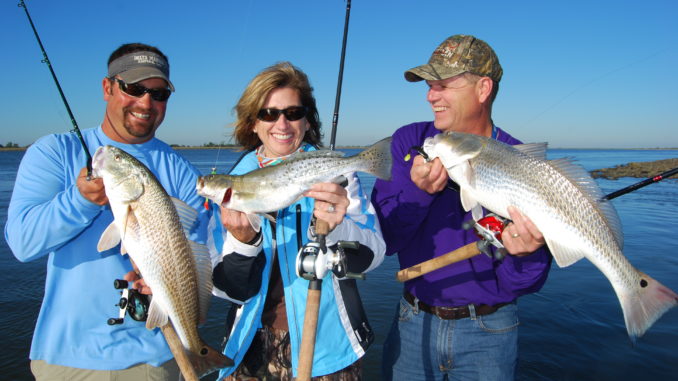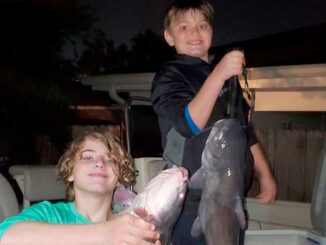
Louisiana Department of Wildlife and Fisheries Secretary Robert Barham said Monday his motivation for closing Louisiana’s fertile fishing grounds is to protect the state’s reputation.
Barham told LouisianaSportsman.com in a telephone interview that his department has been working closely with the state’s Department of Health and Hospitals and Department of Environmental Quality, and none of the agencies has yet encountered any oil-tainted game fish.
But still, Barham said he can’t risk the blow to the Bayou State’s standing as the producer of America’s best-tasting seafood.
“We can’t afford for bad product to go out of Louisiana,” he said.
That explains the commercial closures, but Barham said he’s got the same concern with the state’s recreational reputation.
“There would be a wildfire of reports of someone getting a fish from Louisiana and it tasting bad,” he said. “It would hurt tourism in Louisiana.”
Barham likened it to eating a farm-raised catfish fillet that has an off taste. Such exposure to consumers hurts the industry as a whole, he said.
“That catfish isn’t dangerous; it doesn’t present a health hazard,” Barham said. “It’s just tainted; it tastes bad.”
The secretary closed recreational fishing in most areas east of the Mississippi River on April 30 in response to the Deepwater Horizon oil spill. At the time, oil from the spill had not yet reached any of Louisiana’s coastal marshes or beaches.
Barham issued an additional closure Sunday (May 9) in Louisiana territorial waters west of the Mississippi to Point au Fer. The closure did not include any inshore waters until yesterday (May 10), when Barham closed portions of Terrebonne and Timbalier bays as well as some interior marshes in Terrebonne, Lafourche and Plaquemines parishes.
That closure was necessitated by the discovery of oil inside of the area’s passes, Barham said.
“The Coast Guard found emulsified oil in the Cat Island area,” he said.
To view a map of the closed areas, click here.
The closure includes all the outside beaches in the area, but not the inland waters of the Barataria Basin.
“Barataria Bay looks good right now,” Barham said.
The LDWF is pushing hard to get BP to stop using chemical dispersants to break up the oil, Barham said.
“We have real concerns about this,” he said. “It’s so risky to the whole biosphere.
“It’s more toxic than raw oil to the sea life.”
Barham said the dispersants are designed to work at the surface where they’re exposed to air. When they’re injected so far below the surface, they could potentially cause more harm than good.
“Just because (the oil) is out of sight and out of mind doesn’t mean it’s out of the water,” he said. “If it stays down, it’s not influenced by the wind; it’s influenced by the currents. You’ve got it going in multiple directions.”
Barham said it’s too soon to speculate when inshore waters would be reopened, or if he’d even consider opening any of them before the flow of oil is stemmed.
“We’re not closing these areas on a whim,” he said. “We’ve got to err on the side of caution.”
